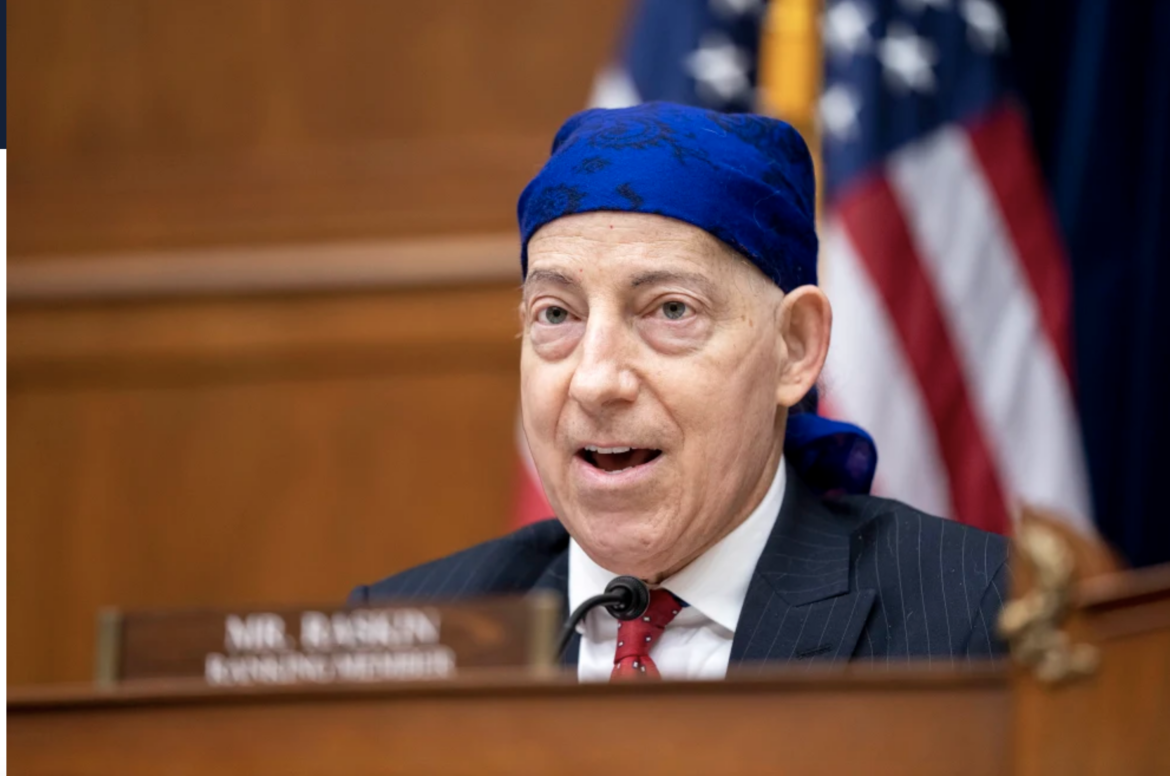Representative Jamie Raskin (D-Md) has stated that Congress can disqualify Donald Trump from taking the Office of President if he wins the election in November 2024. A video clip of Representative Raskin making such a statement is available online and can be accessed through an August 6, 2024 article by M.D. Kittle posted on The Federalist at https://thefederalist.com/2024/08/06/firebrand-leftist-jamie-raskin-said-congress-must-disqualify -trump-predicted-civil-war-conditions/.
In the video clip, Representative Raskin refers to January 6, 2025. That is the date on which Congress will count the electoral votes and certify the winner of the 2024 Presidential election. U.S. Code, Title 3, Section 15 governs the process by which Congress acts to count the electoral votes and certify the winner of the Presidential election. Furthermore, in the video clip Representative Raskin refers to U.S. Constitution, Amendment 14, Section 3. However, Representative Raskin’s claim that Congress can disqualify Donald Trump on January 6, 2025 is legally flawed because it ignores or fails to take into account the language of (1) U.S. Code, Title 3, Section 15 and (2) U.S. Constitution, Amendment 14 (“14th Amendment”), Section 5.
U.S. Code, Title 3, Section 15(d)(2)(B) sets forth the terms under which objections to electoral votes can be raised by Congress to challenge their validity. Section 15(d)(2)(B)(ii) states: “Grounds for Objections. — The only grounds for objections shall be as follows: (I) The electors of the State were not lawfully certified under a certificate of ascertainment of appointment of electors according to section 5(a)(1). (II) The vote of one or more electors has not been regularly given.” (Emphasis added)
Section 15(d)(2)(B) deals with objections to electoral votes, not objections to the qualifications of Presidential candidates. Furthermore, because Section 15(d)(2)(B) specifically limits the reasons upon which Congress can raise objections to electoral votes, Congress cannot entertain objections to electoral votes based on other reasons. Any attempt by Congress to do so would violate the plain language of Section 15(d)(2)(B). Since Section 15(d)(2)(B) does not mention or refer to the 14th Amendment in any way, the 14th Amendment cannot be invoked as a basis for raising an objection to electoral votes under Section 15(d)(2)(B).
Furthermore, Representative Raskin’s reference to Section 3 of the 14th Amendment is not sufficient to justify his statement about Congress being able to disqualify Donald Trump on January 6, 2025 if Donald Trump wins the 2024 election. Why? Because Section 5 of the 14th Amendment states “The Congress shall have power to enforce, by appropriate legislation, the provisions of this article.” (Emphasis added). Since Section 5 of the 14th Amendment specifies that Congress can enforce the 14th Amendment through “appropriate legislation,” any effort by Congress to enforce the 14th Amendment through non-legislative means is not authorized by Section 5.
The process by which Congress enacts legislation is set forth in U.S. Constitution. Article I, Section 7. Any action taken by Congress that does not comply with the requirements of U.S. Constitution, Article I, Section 7 cannot be considered legislation. Because actions Congress takes under U.S. Code Title 3, Section 15 do not satisfy the constitutional requirements for legislation under U.S. Constitution, Article I, Section 7 such actions cannot be deemed to be legislation. So any action taken by Congress under U.S. Code Title 3, Section 15 does not constitute legislation under Section 5 of the 14th Amendment. Therefore, Congress cannot rely on its actions under U.S. Code Title 3, Section 15 to justify any claim that it is enforcing Section 3 of the 14th Amendment consistent with the terms of Section 5 of the 14th Amendment.
My analysis is based on existing law and does not address any future changes to existing law that might be made with respect to Congressional enforcement of Section 3 of the 14th Amendment. Unless such new legislation is enacted and becomes a federal statute (under the terms of U.S. Constitution, Article 1, Section 7) before January 6, 2025, Representative Raskin’s claim that Congress can disqualify Donald Trump on January 6, 2025 lacks a legal basis.
Representative Raskin is entitled to his opinion about the eligibility of Donald Trump to be President of the United States. However, if Donald Trump wins the 2024 election, neither Representative Raskin nor any other Member of Congress is entitled to seek to prevent Donald Trump from taking office through means that would ignore, circumvent, evade, or be inconsistent with existing law. Even Members of Congress are not above law.


1 comment
This is a government of the people, by the people and for the people. Raskin is exactly the type of people rejected by the founders. Arbiters of right and wrong like him are dangerous to the freedom of the we the people.